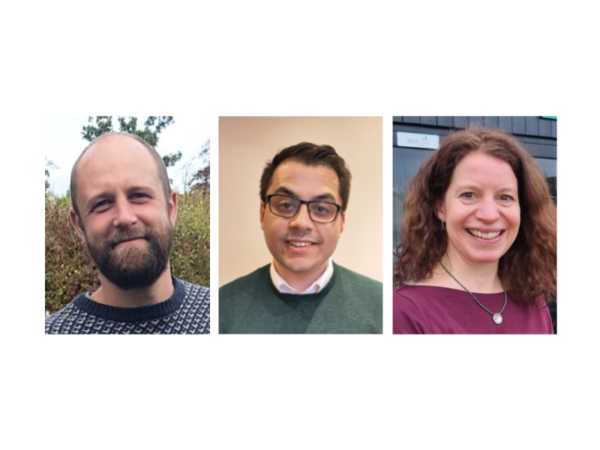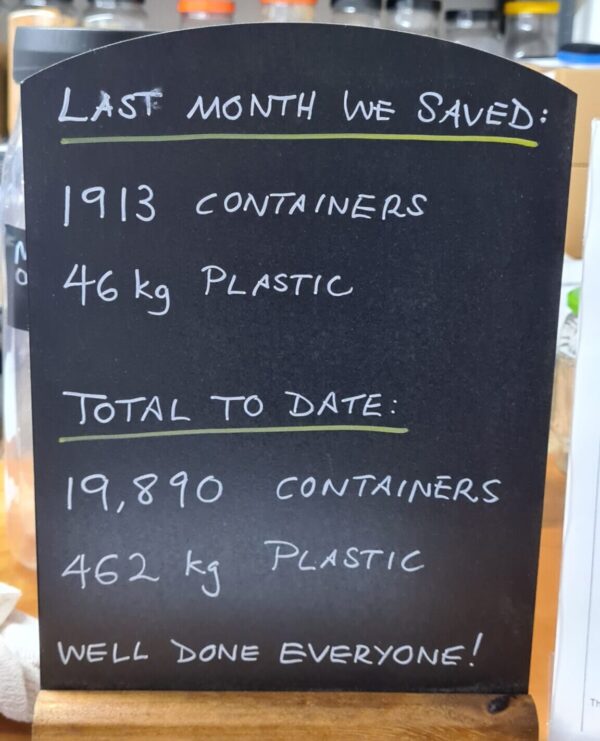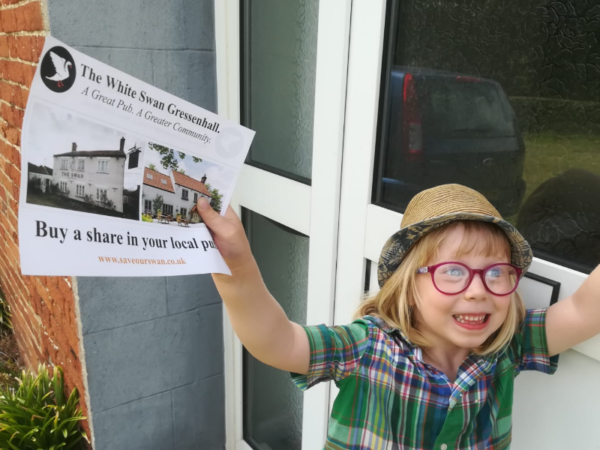Plunkett UK is governed by a Board of Trustees who are elected by our members. These 12 individuals are volunteers, generously giving their time and sharing their considerable expertise.
For Volunteers Week 2024, we caught up with three of our Trustees – Alex Beggs (AB), Ruth McAreavey (RM) and Jeevan Jones (JJ) – who answered questions about several current issues and shared their motivations as to why they serve on the Board.

How could Plunkett and the community business network simply and effectively implement environmentally sustainable initiatives, to tackle climate change?
AB: Plunkett’s has a well-curated member hub platform with information and resources on a breadth of topics. We know that many involved with our network are volunteers, and that their time is precious – the resources aim to make it as easy as possible for them to understand how they can take environmental action. We develop a menu of options for groups – from the more inexpensive quick-wins through to longer-term sympathetic retrofits and everything in-between. In the most recent Better Form of Business report, 95% of member respondents indicated they had taken some measures on environmental sustainability in the last year, so it is important Plunkett continues to support this ambition.
How significant was it for Plunkett to change its name to incorporate ‘UK’ earlier this year?
RM: Very important as it underscores the reach of Plunkett in a very explicit way. We want groups in all 4 nations to feel that they have access to our services and this was the simplest way of promoting that fact.

In what ways could Plunkett more effectively meet its impact target area of promoting equity, diversity and inclusion by creating safe and welcoming spaces for all?
JJ: Community businesses are all about people. The more open, honest and willing to break down barriers they are, the more successful they’ll be. I think Plunkett can help by providing awareness and guidance, but it comes back to how willing each community business is to adapt and grow. There’s also no right way for everyone – It will vary by community.
What prompted each of you to volunteer to become a trustee for Plunkett UK?
AB: As with any business, getting a community-owned business off the ground, established and thriving is no easy feat. The project to save The White Swan in Gressenhall was smoother and more assured through Plunkett’s support and encouragement from the outset. Through a professional role I was familiar with Plunkett and was able to connect with them early in Gressenhall’s community enterprise journey. It is of great importance to grow Plunkett’s reach and awareness to connect and inspire future community groups. Plunkett also have an inspiring and high-calibre trustee team and it was also an excellent opportunity to develop some of my skillsets through trusteeship.
JJ: After spending around five years as a senior elected representative of the Co-operative Group, the UK’s largest consumer co-op, I fancied a change. Plunkett is much smaller, and much more involved closer to the ground – helping communities actually set up new co-operatives… and the community pubs aren’t half bad!

RM: I believe in the importance of creating real-life impact. I have always worked closely with third sector organisations on real-life issues and get a lot of satisfaction in bringing my skills and expertise to the table. Before I was an academic I worked in various organisations (local government, Housing Association and in a charity). I can bring my knowledge and experience to the table. Volunteering with Plunkett UK also provides me with insight into what is going on in the community ownership sector and how it is changing.
How would you describe the contribution you make to the Board?
JJ: I try to bring a fresh perspective, strategic thinking and a knack for problem solving – and contacts and partners in the wider co-operative movement and beyond.
RM: I have networks and connections with rural organisations in Northern Ireland and in the North East of England which have been valuable to the Board and to the SMT as we focus on achieving good coverage across the UK. I’ve also been able to work directly with some of the SMT on specific issues.
AB: I’m from an accounting background and look to lend some of that expertise both to the Board and as a member of the Audit and Risk Committee. Outside the board I relish being an ambassador for the movement – speaking to early-stage groups and helping convene the East of England Community Pub Network set up by Plunkett over two years ago and which continues to gather momentum.
What gives each of you the greatest joy out of your volunteering with Plunkett?
RM: It feels genuinely collaborative; the Board collectively has a lot of knowledge and skills. I’ve learned a lot and enjoy attending and participating in the main meetings as well as in various other committees and working groups. Ultimately seeing the impact we have on rural communities is immensely satisfying.
AB: Every time I walk into my local community-owned pub, The White Swan, and feel the buzz of activity, conversation and connection I’m struck with gratitude in recognition that all of this nearly didn’t happen and that it almost closed forever. It gives me great pleasure reading Plunkett’s annual Impact Report to be reminded of the amazing collective achievements of the community-owned business sector.
JJ: Learning about new types of community businesses and working with like-minded people.
New Trustees’ Recruitment
We are currently seeking to appoint up to two new Trustees as part of agreed succession plans to strengthen the Board.
We are particularly interested in applications from people with a good understanding of the wider social economy ecosystem in Scotland and from people bringing insight of the fundraising landscape for charities either in the context of traditional Trust and Foundation fundraising, or with an understanding of corporate partnerships and consultancy opportunities.




